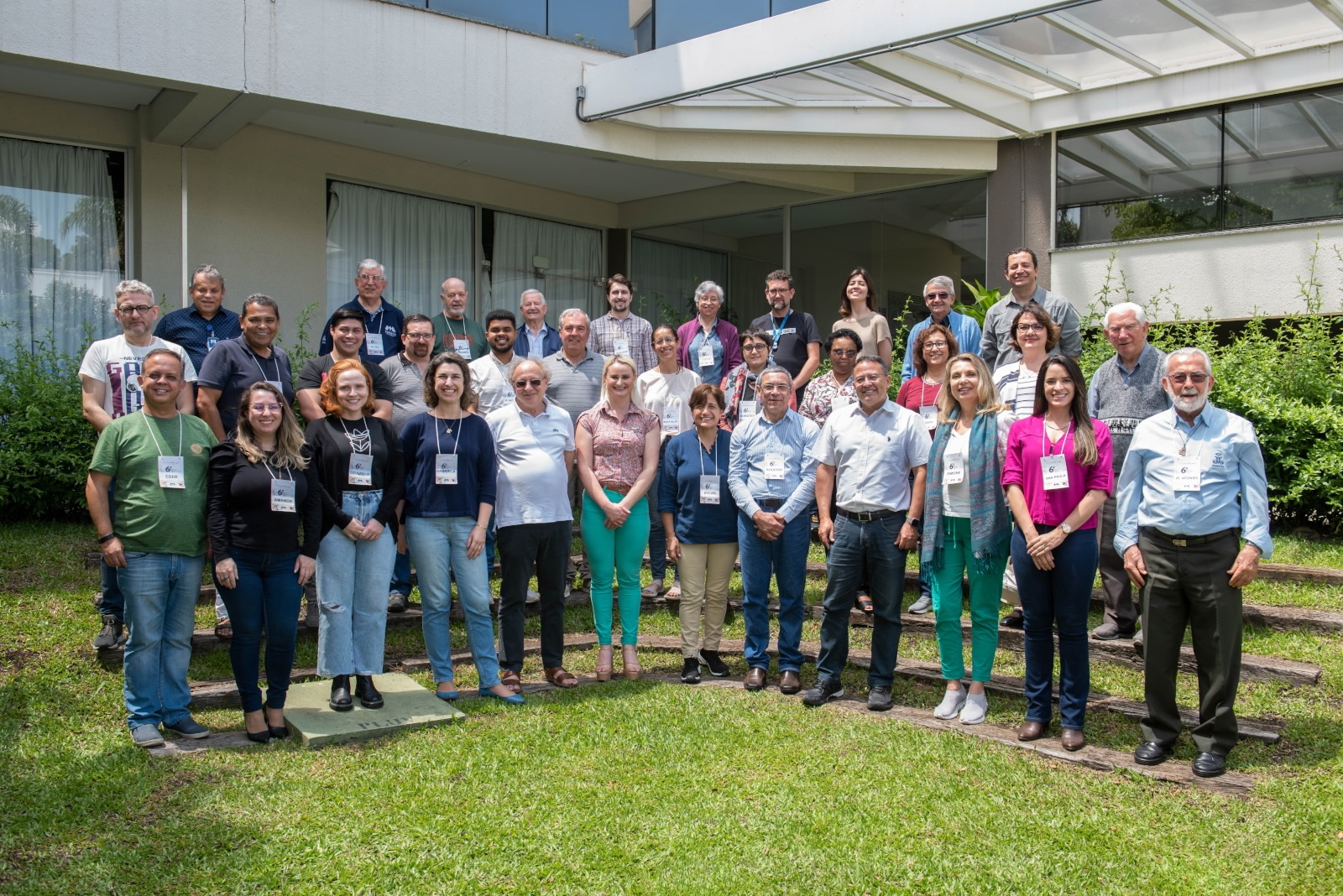
6th Meeting of Memory Centers of the South America Region
From November 21 to 25, the Brasil Centro-Sul Province hosted the 6th Meeting of Centers of Marist Memory of the South America Region. During the event, workshops, conferences, and conversations were held, with the aim of supporting the development of the strategic planning of the Network of Memory Centers. Librarians, specialists, secretaries, archivists, translators, historians, scholars of Marist Spirituality and Marist Brothers were present as participants.
The first meeting of Marist Memory Centers of the Region was held in 2015. “To speak of memory is to speak of the preservation of the institution”, recalled Leonardo Soares, executive secretary of the South American Region, during the opening of the Meeting.
The Vicar General, Br. Luis Carlos Gutiérrez, participated virtually and highlighted in one of his interventions, that “a Memory Center, a library and an archive are antidotes against amnesia.”
The Meeting highlighted the importance of maintaining memory spaces and invited to take advantage of available technologies to create dynamic content and thus build an accessible memory, which interacts with the present to feed people’s curiosity.
The executive director of the host Province, José Leão da Cunha Filho, gave a conference on Marist Leadership where he spoke about the characteristics of various Superiors General and how their example has to do with the present and with the role expected of a good Leader.
Among the reflections of the group, Ideas arose such as that all Memorials and Museums should contemplate a Marist spiritual formation for managers. In relation to this, Br. Joaquim Sperandio took the opportunity to add: “if we did not have a minimum of Marist spirit, we would become just any institution”. The director of the Marist Memorial of Curitiba (where the meeting was held), Dyogenes Philippsen Araújo said that the network of memorials “gives us inputs to think about the strategic planning of the Memory Center.”
Angelo Diniz, one of the Memorial researchers, spoke about his research on the origins of Marist spirituality.
The event was also attended by Br. Juan Moral who was archivist of the Marist Institute and the current General Archivist of Rome, Dorotea Cinanni, who presented the structure of the General Archive. She said that “the archives serve to rethink and increase knowledge of the charism.” And she invited the participants to make a constructive critique of currently existing memorials and encouraged their dissemination at international academic events.
During the meeting, the importance of taking care of the archives, their conservation and, above all, the risks when transferring these documents was reinforced. The care of the existing archives is not the only concern of the professionals of the Network of Memory Centers, there is also the need to generate a collection for the future. In this sense, the Marist Memorial of Curitiba presented some of its projects:
- A Reliquary Project – a collection of biographical videos of living Marist Brothers, consisting of free testimonials with stories and experiences.
- Memory box – created from the need to identify people and images from the collection. It is where the brothers help the specialists in this identification.
- Image Bank – PMBCS is creating a bank of images, both historical and recent, to support audio-visual and advertising productions. The collection is available to any Marist Province that needs it.
Showing his concern for the historical records of the present and the future, Brother Moral spoke about the need for the provinces to have studies and records on their origins. “There are very few studies on the origins of the provinces, but recently, in this province, we did an excellent publication on the origins of the Marists in China,” he explained.
During the event, the official launch of the first edition of the File Management Manual of the Province of Brasil Centro-Sul was also held, which documents good practices for the conservation and control of our collections.
The last activity of this meeting was the design of a strategic plan for the Network of Memory Centers, which was based on the most important points of the Strategic Plan for the South America Region, such as the strengthening of consecrated life and the laity, stop projects that overlap; and not interfere with local projects.
The result of this planning will be submitted for approval, so that, based on it, the Memory Centers can design their action strategies.
